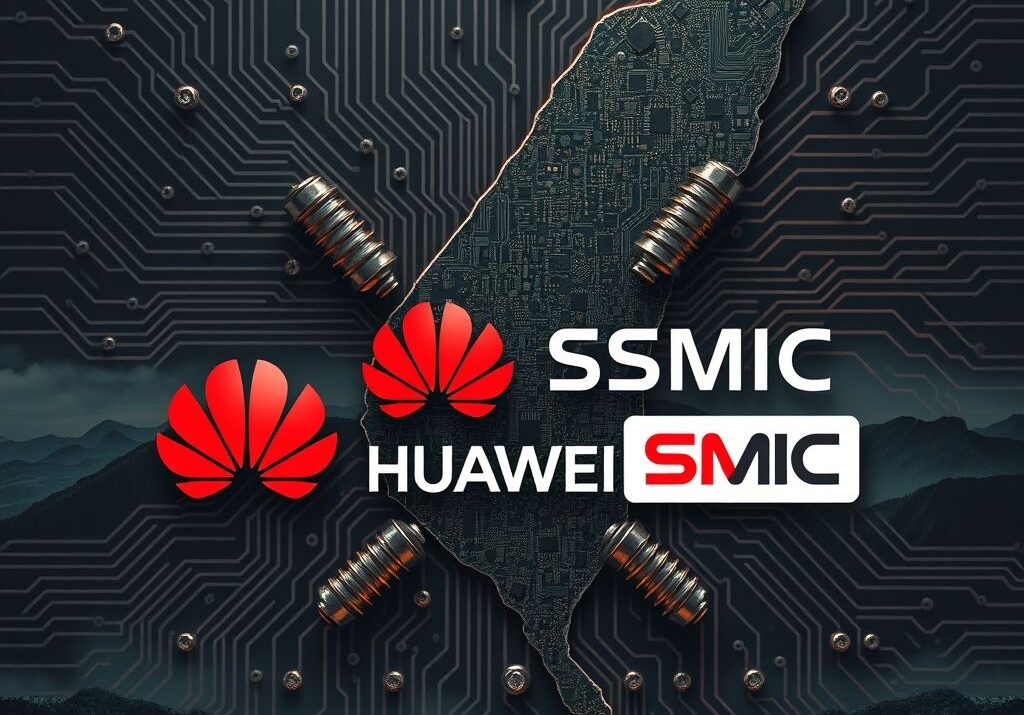Ever feel like the tech world is a giant chess game? Well, Taiwan just made a pretty significant move that’s got Huawei and SMIC, two of China’s biggest tech players, feeling the pressure. I stumbled across a piece on TechCrunch today that really caught my eye: “Taiwan places export controls on Huawei and SMIC.” It’s not my original research, but thought it was important to share.
Basically, Taiwan is clamping down on exporting tech that could help these companies build cutting-edge AI chips. This is a big deal! Think about it: AI is the future, and whoever controls the chip tech controls a big chunk of that future.
So, why is this happening? Well, national security is the name of the game. Taiwan is a major player in the global semiconductor industry – we’re talking about a place that produces over 60% of the world’s semiconductors (source: Taiwan Semiconductor Industry Association). They don’t want their technology being used in ways that could threaten their own security or the security of their allies.
This isn’t just speculation, either. The US government has already placed restrictions on Huawei and SMIC, citing similar national security concerns. According to a report by the Center for Strategic and International Studies (CSIS), these restrictions have significantly impacted Huawei’s access to key technologies (source: CSIS – Huawei and U.S. Export Controls). Taiwan is essentially following suit, and that amplifies the effect.
Now, what does this actually mean for Huawei and SMIC? It means they’re going to have a much tougher time getting the resources they need to stay competitive in the AI race. Building advanced AI chips requires super specialized equipment and know-how. If Taiwan, a major supplier, is cutting off the flow, it creates a serious bottleneck.
This also highlights the delicate balance in the global tech supply chain. One small island can have a huge impact on the world’s largest economies.
My Takeaways:
- AI Chip Race Just Got More Intense: This move escalates the competition for AI chip dominance, forcing companies to find alternative suppliers (which isn’t easy).
- National Security is Calling the Shots: Geopolitics are playing a bigger role than ever in tech, and national security concerns are shaping export policies.
- Supply Chain Vulnerabilities Exposed: This situation shows just how interconnected and fragile the global tech supply chain can be.
- Innovation Will Be Key: Companies will need to invest in R&D to develop their own chip technologies if they want to bypass these restrictions.
- Expect More of This: As AI becomes more critical, expect to see more countries implementing export controls to protect their interests.
What are your thoughts on this? Is this a necessary step for national security, or will it stifle innovation? Let’s chat in the comments!
FAQ
- What are export controls? Export controls are government regulations that restrict the sale or transfer of certain technologies and goods to specific countries or entities.
- Why did Taiwan place export controls on Huawei and SMIC? Primarily due to national security concerns, aiming to prevent these companies from using Taiwanese technology in ways that could threaten Taiwan or its allies.
- Who are Huawei and SMIC? Huawei is a Chinese telecommunications giant, and SMIC is China’s largest semiconductor manufacturer.
- What are AI chips? AI chips are specialized processors designed to handle the complex calculations required for artificial intelligence applications.
- How important is Taiwan in the semiconductor industry? Extremely important. Taiwan produces over 60% of the world’s semiconductors, making it a critical player in the global tech supply chain.
- What impact will these export controls have on Huawei and SMIC? It will make it more difficult and expensive for them to access the technology and equipment needed to develop advanced AI chips.
- Are other countries placing restrictions on these companies? Yes, the US government has already placed restrictions on Huawei and SMIC.
- Will this impact the global supply chain? Potentially, by creating bottlenecks and forcing companies to seek alternative suppliers.
- How might Huawei and SMIC respond to these restrictions? They may invest in domestic R&D to develop their own chip technologies or seek alternative suppliers outside of Taiwan.
- What does this mean for the future of the AI industry? It highlights the growing geopolitical tensions surrounding AI technology and the importance of securing supply chains.








